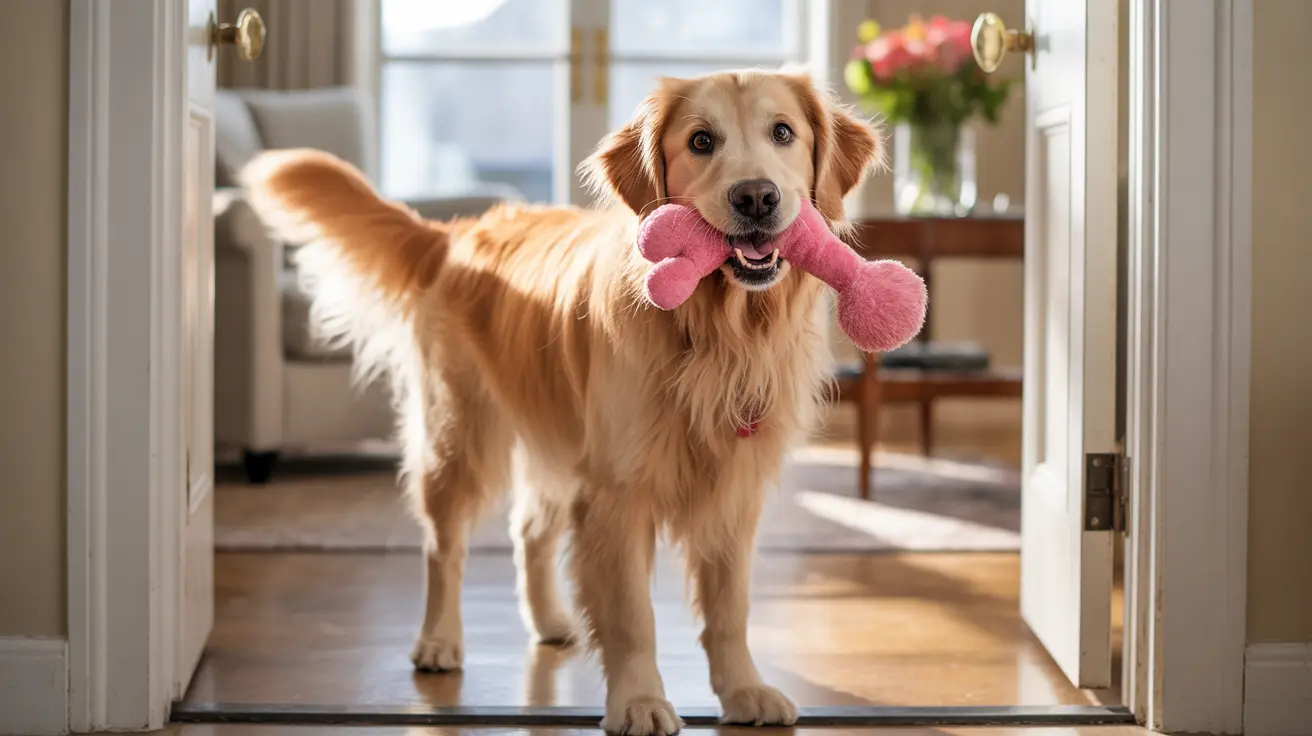If you're a dog owner, you've likely experienced the heartwarming moment when your furry friend greets you at the door with their favorite toy. This endearing behavior is more than just a cute habit – it's a complex form of communication that reveals fascinating insights into your dog's psychology and emotional world.
From expressing excitement and seeking attention to demonstrating trust and affection, there are several compelling reasons behind why dogs bring you toys. Let's explore this charming canine behavior and understand what your pet is trying to tell you.
The Joy of Reunion: Excitement and Play Invitation
When dogs bring you toys upon your arrival home, they're often expressing pure excitement and a desire to interact. This behavior typically represents their most enthusiastic form of greeting, combining their happiness at your return with an invitation to engage in play.
The toy serves as a social catalyst, much like how humans might suggest getting coffee together. For your dog, presenting a toy is their way of saying, "Welcome home! Let's spend some quality time together!"
Natural Instincts and Ancestral Behavior
This toy-presenting behavior has deep roots in canine evolution. Wild ancestors would bring prey back to their pack, and modern domestic dogs retain these instinctual behaviors, albeit in a modified form.
Retrieving breeds, in particular, are genetically programmed to carry and present objects. When they bring you toys, they're fulfilling these natural instincts in a domesticated context, showing how ancient behaviors adapt to modern environments.
Emotional Connection and Trust
When dogs bring you their toys, they're sharing their most prized possessions. This gesture demonstrates significant trust and emotional attachment, as these items are often among their most valued belongings.
Think of it as similar to a child sharing their favorite teddy bear – it's an act of deep trust and affection, revealing the strong bond between dog and owner.
Stress Relief and Self-Soothing
Sometimes, dogs use toys as comfort objects during moments of excitement or mild anxiety. The act of carrying a familiar toy can help them manage the emotions that arise when their owner returns home.
This behavior can serve as a healthy coping mechanism, helping your dog regulate their excitement and maintain emotional balance during transitions.
Social Communication and Attention-Seeking
Dogs are incredibly social animals, and bringing toys is one of their sophisticated ways of initiating interaction. They've learned that this behavior reliably gets their owner's attention and can lead to positive social engagement.
This form of communication is particularly effective because it's both visual and interactive, making it hard for owners to ignore – exactly as your dog intended!
Frequently Asked Questions
Why do dogs bring us toys when we come home?
Dogs bring toys when you come home to express excitement, initiate play, seek attention, and strengthen social bonds. It's their way of welcoming you and requesting interaction after being apart.
How can I encourage my dog to stop bringing me their toys if I'm busy?
Provide alternative activities like puzzle toys or a designated settling spot. Acknowledge their greeting briefly, then redirect them to their alternative activity with positive reinforcement.
What does it mean if my dog brings random objects instead of toys?
Bringing random objects could indicate boredom, attention-seeking behavior, or possibly anxiety. Ensure your dog has appropriate toys and sufficient mental stimulation throughout the day.
Can dogs bring toys as a sign of stress or anxiety, and how can I tell?
Yes, sometimes dogs use toys for comfort when stressed. Signs include excessive toy carrying, inability to settle, and other anxiety indicators like pacing or whining. Consult a veterinarian if you're concerned about anxiety.
How can I use my dog's toy-bringing behavior to deepen our bond?
Respond positively to their toy offerings with brief play sessions or gentle acknowledgment. Set aside dedicated play times, and use their favorite toys during training to strengthen your connection.
Understanding why dogs bring you toys helps deepen the appreciation for these special moments of connection with our canine companions. Whether it's an expression of joy, a request for attention, or a demonstration of trust, this behavior represents one of the many wonderful ways dogs communicate their affection and desire to interact with their human family members.






